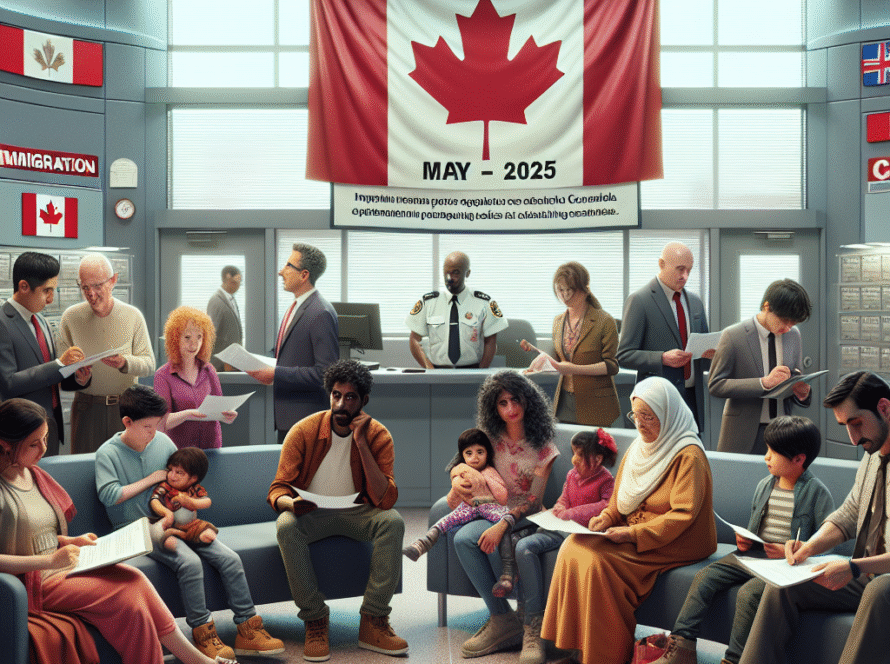IRCC Reveals Updated Processing Times for April 2025

Canada’s Immigration Processing Times Take a Turn for the Better: Key Updates and Insights
As of April 1, 2025, Canada’s Immigration, Refugees, and Citizenship Canada (IRCC) has unveiled notable improvements in processing times for various immigration applications, including visas, permanent residency (PR), and citizenship. These updates are significant for anyone navigating the Canadian immigration landscape, offering faster timelines that could positively influence plans for aspiring immigrants and their families.
Key Processing Time Changes
1. Citizenship and PR Cards:
- Citizenship Grant: Now 8 months, down from 9 months.
- PR Card: Reduced to 14 days from 16 days.
- Renunciation of Citizenship: Decreased to 8 months, a reduction of 2 months.
2. Family Sponsorship:
- Processing times for spousal applications remain unchanged for most categories, but notable increases occurred for parents/grandparents PR applications in non-Quebec regions, now at 36 months compared to 33 months previously.
3. Permanent Residency Economic Class:
- The Federal Skilled Worker Program (FSWP) saw an increase to 6 months, while the Provincial Nominee Program (PNP) via Express Entry improved to 6 months from 7 months.
4. Temporary Resident Visas:
- Visitor visa processing from India has dramatically decreased from 61 days to 28 days, reflecting a more efficient approach to handling applications from high-demand regions.
Insights and Analysis
The IRCC’s shift to real-time data tracking marks a pivotal change in how processing times are communicated, reflecting 80% of cases and adapting to application surges and IRCC’s operational capacity. This transparent approach is critical for applicants who are often left in the dark about their application status.
While the reductions in processing times are encouraging, it’s essential to note that these are estimates, not guarantees. Applicants should prepare for potential variability in wait times depending on individual circumstances and regional processing capabilities. For instance, the prolonged timelines for parents and grandparents in Quebec underscore the regional disparities that still exist within Canada’s immigration framework.
A Broader Perspective
As Canada continues to attract global talent and families, these updates come at a crucial juncture. With the upcoming federal elections and ongoing discussions about immigration policies, the efficiency of the IRCC will be under scrutiny. The swift processing times may serve as a strategic advantage for the current government, showcasing a commitment to facilitating immigration in a time of increasing global mobility and economic competitiveness.
Moreover, the improvements reflect a broader trend towards modernization in government services, emphasizing the need for continued investment in technology and human resources to handle the complexities of immigration.
Conclusion
For those seeking to immigrate to Canada, the latest IRCC updates provide both hope and clarity amidst an often complex process. Keeping informed about these changes is essential for anyone planning their next steps, whether it be for family reunification, work, or settling down in Canada. As the immigration landscape evolves, staying updated will empower applicants to make informed decisions and navigate their Canadian journey more effectively.
Bookmark this page for real-time updates and share this information with anyone planning their move to Canada!



